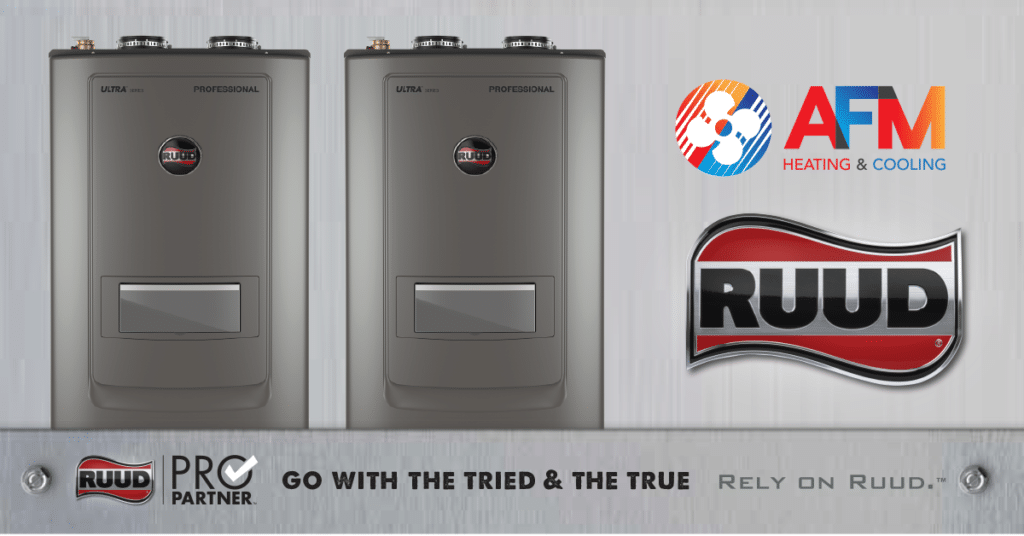Every home has different needs when it comes to heating and cooling. So, to help you choose the best residential boiler for your home’s heating needs today, we’ve put together some important information you should consider before you make your purchase.
Features and Advantages
First and foremost, you need to take some time to think about precisely what kinds of features and advantages you’re looking for in your new boiler. For instance, if energy efficiency is of great importance to you, you might want to consider a condensing boiler over a non-condensing one, since a condensing boiler will provide sufficient heat despite functioning at lower temperatures by concentrating the water vapor produced during the heating process, using the “waste heat” to help warm up all the new fresh cold water flowing in. Additionally, you’ll also want to make sure it’s a sealed combustion boiler as well, since they allow outside air in to help direct exhaust gases out, keeping dangerous toxic gases from getting inside your home.
Considerations
Living in Michigan where the temperature can easily reach below zero, you likely already know you want your new boiler to be a powerful one. However, you should also be thinking about ventilation and overall system efficiency as well. For example, boilers that flow through a chimney can typically be placed anywhere, including smaller, enclosed areas. However, if you choose a boiler that forces air through the ventilation system, it will need a lot more open free space to optimize airflow. So you really have to consider what kind of space your property will allow. Furthermore, your system’s efficiency directly equates to your costs, which means whether you choose an oil, gas, or electric boiler can have a major impact in your overall heating costs. An electric boiler, for instance, will always operate at 100% efficiency since they don’t produce any waste. On the other hand, if you get a gas boiler you’ll want to look for one that offers at least 89% – 98% efficiency, or an oil boiler with a rating of at least 80%. What’s the difference you may ask?
Difference Between High VS Standard Efficiency
It’s obvious that an older boiler will be less efficient than a new one, but it’s not always as easy to determine exactly which new type of new boiler will be the most practical for your home’s unique heating needs. Efficiency is determined by figuring out how much fuel will be wasted over time. With an electric boiler nothing is wasted, hence it’s 100% efficiency rating. For the rest, however, you have to look at what the Federal Trade Commission calls their official Annual Fuel Utilization Efficiency (AFUE) rating to compare efficiency. Old boilers, or those operating at low-efficiency, typically have AFUE scores within 56% – 70%. Newer, standard baseline efficiency boilers will have AFUE scores closer to 78%. For a lot of people, the sweet spot is where the newer, mid-efficiency systems fall, which is between 80% and 83%. Although, if you want the best, you’ll want a brand new, high efficiency model with an AFUE score between at least 90% and 98%. The more efficient your system, the longer it will last and the less it will cost over time – all while keeping your home optimally warm.
Whatever you decide to do, of course, or whatever you feel is right for your home, just make sure you get in touch with AFM Heating & Cooling when you figure out exactly what you want. We have all the boilers and installation services you need to get everything you need taken care of as quickly and conveniently as possible. Call AFM Heating & Cooling at 734.464.6700 for a free consultation, or simply fill out the form in the sidebar, today.


